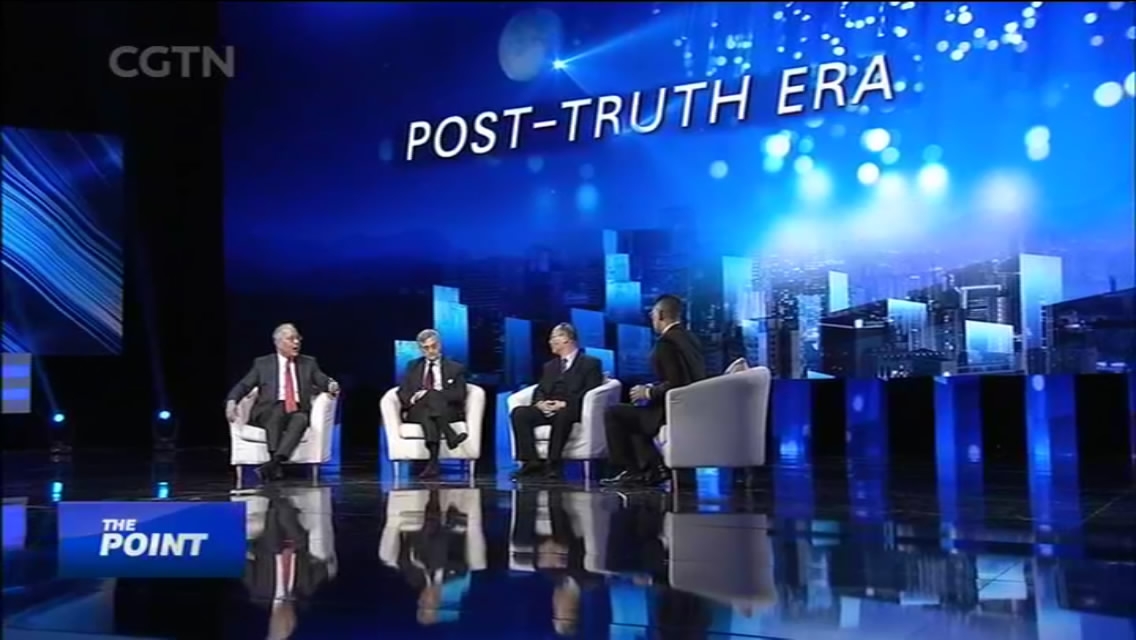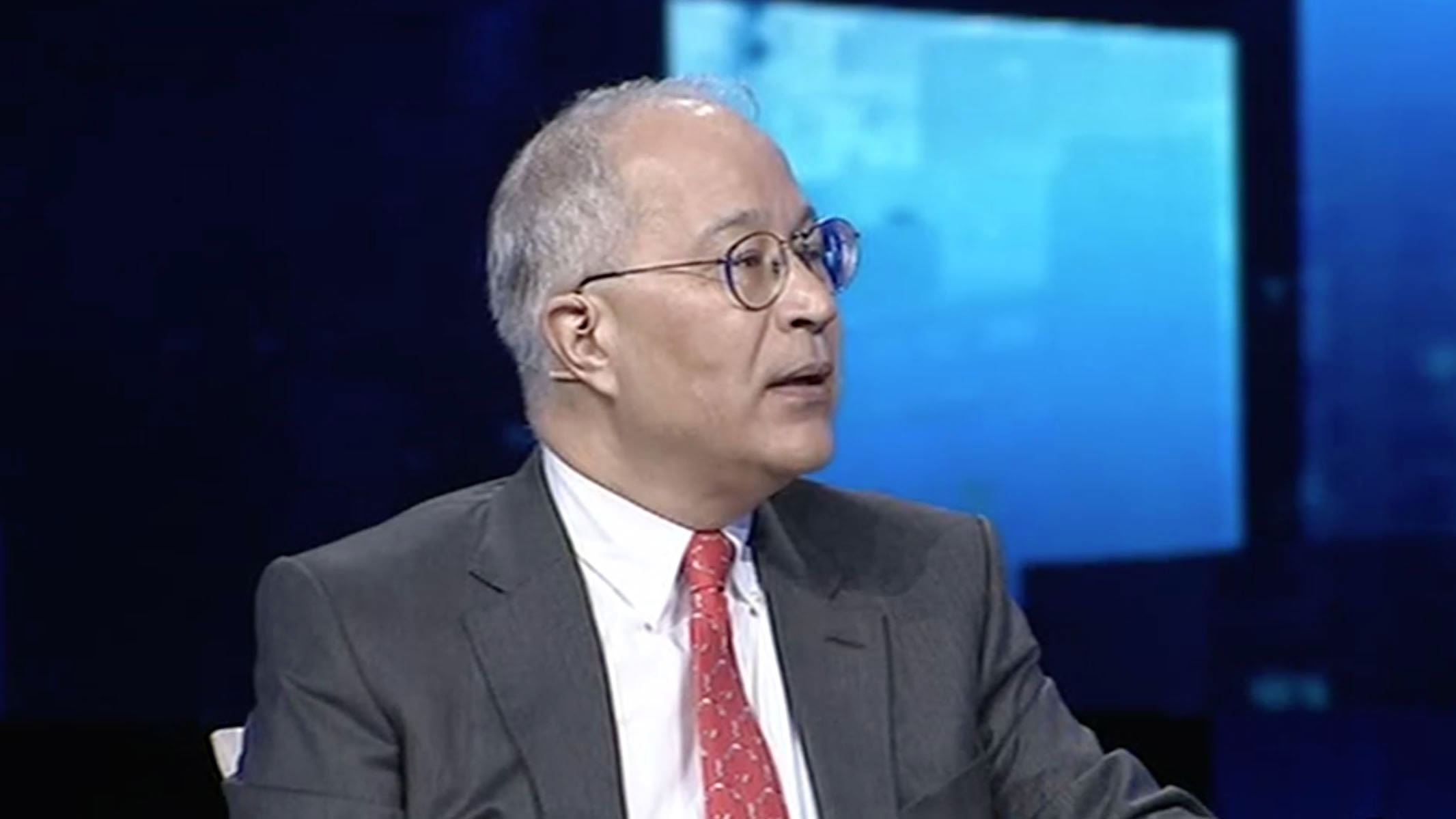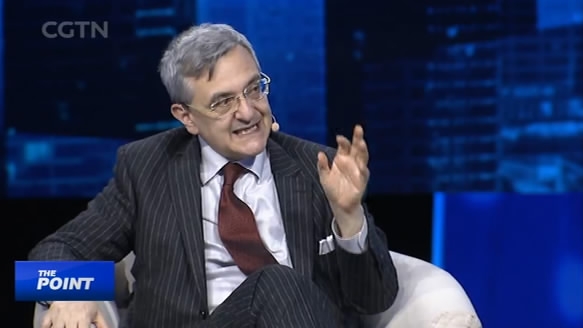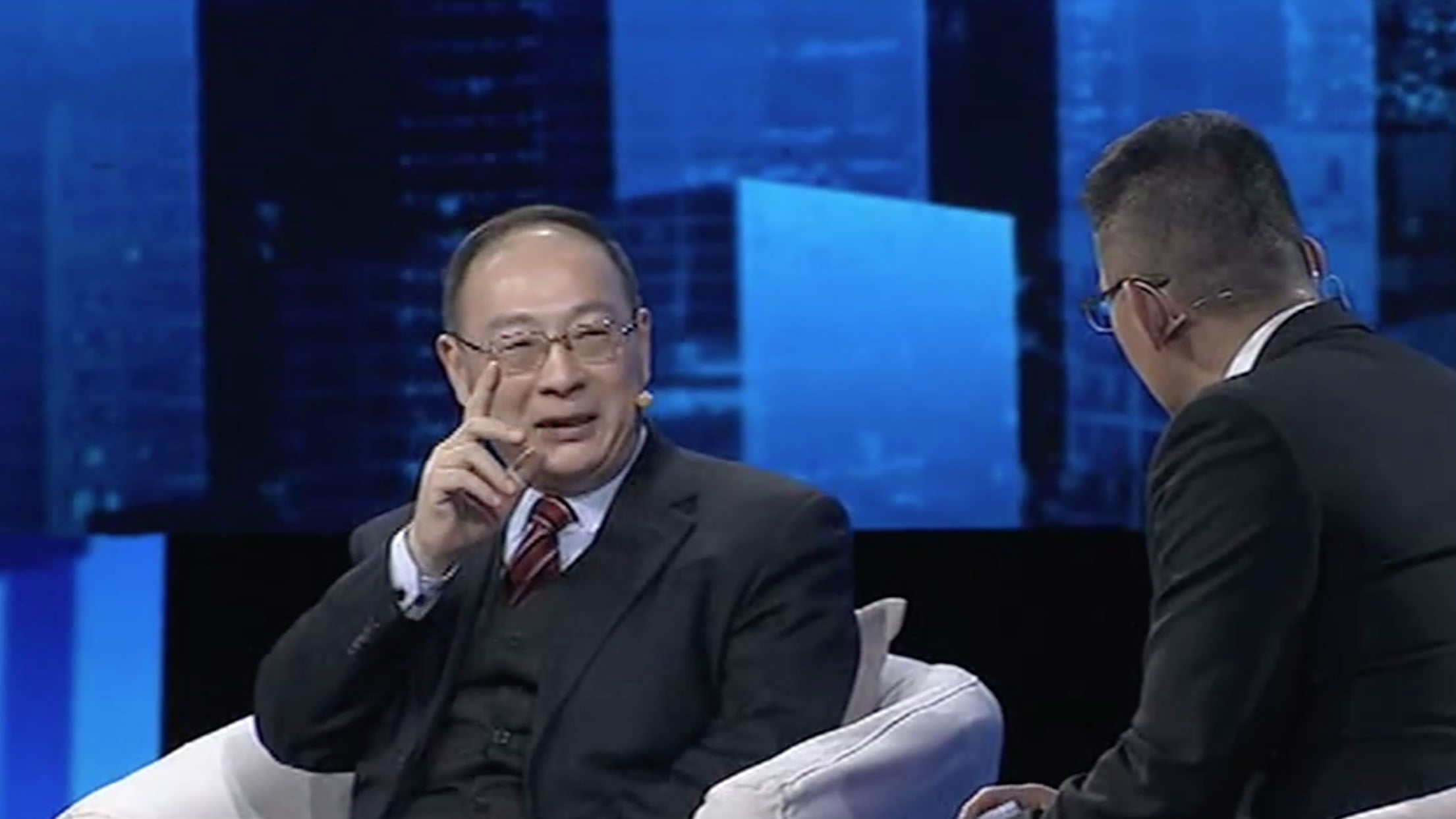
Politics
17:04, 02-Mar-2018
Politics and media in the post-truth era
CGTN

By CGTN’s The Point
The world has stepped into a new era. “Fake news” can be rapidly spread on social media, contributing to refashioned politics and polluted depictions of news stories. Why is it so difficult to sort through the news to find the truth in this era?
“The reasons are about a social split and the Internet,” said Jin Canrong, a professor at the School of International Studies of Renmin University during The Point’s special discussion on politics and media in the post-truth era.
Jin thought that people tend to believe what they want to believe and, because of the Internet, it is easy for them to find what they want to see.

Einar Tangen, a current affairs commentator, echoed Jin’s remarks. “Look at Trump’s supporters. Despite Trump on a daily basis saying 3.5 average untrue things or exaggerated things a day, they still say he is wonderful,” Tangen said.
Tangen thought after the 2008 financial crisis, American middle and lower classes have lost faith in the current system. “If you talk with Trump supporters, they will say everything we’ve been fed by the establishment, by the media, has all been false.” Instead, they tend to prefer the simplest rhetoric.

Francesco Sisci, the senior researcher at the Center for European Studies of Renmin University of China / CGTN Photo
Francesco Sisci, the senior researcher at the Center for European Studies of Renmin University of China / CGTN Photo
Francesco Sisci, the senior researcher at the Center for European Studies of Renmin University of China, said people were supposed to believe globalization would make everybody rich. However, the 2018 financial crisis proved this was not the case.
“There is a polarization,” said Sisci, “Some people don’t trust the institutions.” He suggested that institutions need to be renewed to meet the needs of common people, and the populists need to try to reach out to the old institution to find common ground.
Speaking about the media’s role in the post-truth era, Tangen thought an era of yellow journalism is on the rise—a style of newspaper reporting that emphasizes sensationalism over facts. “This is a way of manipulating the masses in order to get what you want,” Tangen criticized.
Sisci added that the pace of modern society is too fast. “20 or 30 years ago, you were supposed to file a story a week. You had plenty of time. While now it is just file, file, file. No time for checking,” he elaborated.

Jin added that as a society becomes more fractured alongside the background of an exponentially growing and increasingly influential Internet, trust toward the media declines.
“What is your recipe? How can we do things differently?” The host asked.
“I have no answer at the moment. That is a big challenge,” Jin answered.
The Point with Liu Xin is a 30-minute current affairs program on CGTN. It airs weekdays at 9.30 p.m. BJT (1330GMT), with rebroadcasts at 5.30 a.m. (2130GMT) and 10.30 a.m. (0230GMT).

SITEMAP
Copyright © 2018 CGTN. Beijing ICP prepared NO.16065310-3
Copyright © 2018 CGTN. Beijing ICP prepared NO.16065310-3